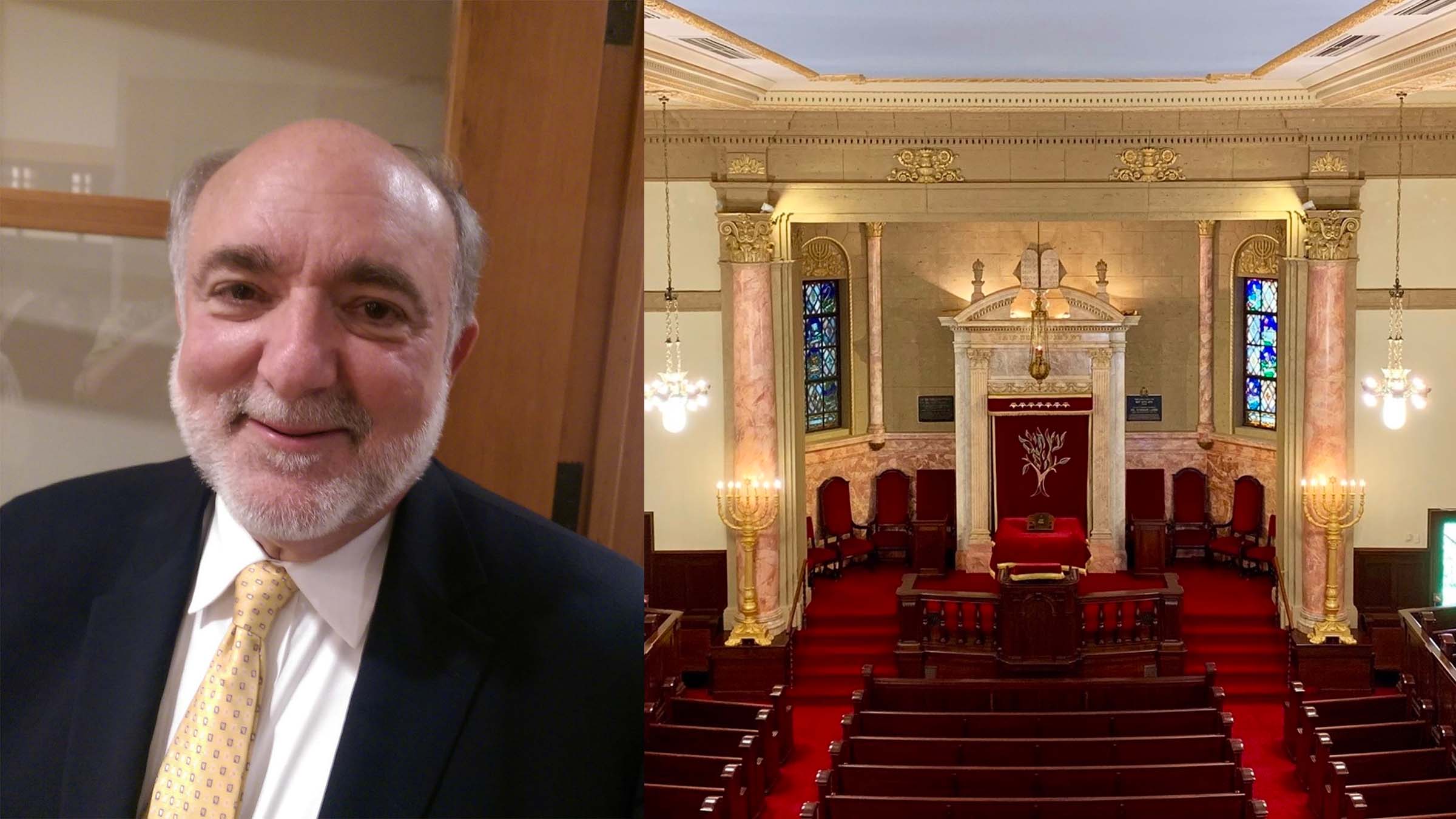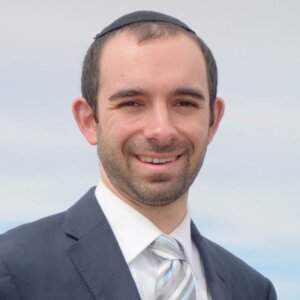‘Most of all, I will miss his smile’: A rabbi on his last conversation with friend and mentor Rabbi David Ellenson
Rabbi Dr. David Ellenson, a pluralistic Jewish leader, died at the age of 76

Graphic by Angelie Zaslavsky
Rabbi David Ellenson had penciled in the wrong time for a book launch at The Jewish Center on Dec. 6. The program at the Upper West Side synagogue, meant to honor its former rabbi and Dr. Ellenson’s scholar friend, Rabbi Jacob J. Schacter, was scheduled for 7:30 p.m.. Dr. Ellenson, who wrote a chapter for the volume that I coedited, arrived at 6:30 p.m..
Dr. Ellenson died a few hours later at the age of 76. His family, friends and students mourn the loss of a peerless scholar, institution head, and the kindest intra-religious border-crosser in all the annals of American Jewish life.
He had something for everyone. Dr. Ellenson served as president of Hebrew Union College, the flagship institution of Reform Judaism, from 2001 to 2013. He did so again, a shorter duration, after the untimely death of his student and successor, Rabbi Aaron Panken, at age 53.
He was a foremost scholar of German Orthodox Judaism and delighted in talking about complicated responsa literature with erudite rabbis of all Jewish movements. He was a faculty member at the Wexner Foundation and other pluralistic institutions. He was a mentor to hundreds of rising Jewish leaders.
Dr. Ellenson’s smile was his very best asset. And it was complemented by a southern accent that rendered his brilliant mind understated and accessible to just about anyone.
I arrived early for the book launch as well. My co-editor and I wished to be sure that the books for sale were all accounted for and to coordinate several other small matters. None of these tasks took much time.
I was struck to see Dr. Ellenson sitting in the large Jewish Center auditorium by himself. I dutifully took a seat beside him. I had been aware that he was slated to attend the program. I had been excited to greet him, if only for a few moments, eager to share with him that the bevy of guidance he had recently supplied to me in the early stages of my latest job transition had redounded very well. Maybe I’d sneak in a comment or two about Jewish history, to “talk in learning,” as he and I had put it many times before.
But here was a much better opportunity. Dr. Ellenson’s miss-scheduling afforded me a fortunate chance to talk shop with a beloved mentor.
I had a lot on my mind to share and to seek his guidance. We spoke about the ongoing Hamas-Israel War, the recent congressional testimonies by Ivy League university presidents, the state of academic Jewish studies, and a new book on the legacy of Rabbi Jonathan Sacks (turned out, we were the two referees tapped by the press).
Dr. Ellenson confessed that retirement was working out very well. He coveted the free time to babysit his grandchildren. He was purposefully unaware, so he said, about much of the institutional politics of American Jewish life that were his business and obligation for the better part of two decades.
His energy for research and writing hadn’t abated, of course. He was particularly proud of a review essay he had authored that feted the work of Dr. Jonathan Sarna, his longtime friend and recent colleague at Brandeis University.
Retirement permitted Dr. Ellenson to interact with a new generation of scholars. In fact, he relayed, he had just come from a meeting with a doctoral candidate on whose committee he happily served. He was delighted about the prospects of supporting new knowledge on European Orthodox Judaism and Religious Zionism.
Current events weighed on him. Several months ago, Dr. Ellenson had started to draft a couple of essays on the judicial reform debate in Israel but then halted his work after the Hamas terrorist attacks on Oct. 7. The grave situation in Israel troubled him, and he was unsure how to proceed, unsure if his point of view was all that perspicacious.
“I’ve moved both to the left and to the right,” he said to me with a smile, referring to his religious and political sensibilities, respectively. “Then again, so have a lot of fine people,” he surmised, ever humbly. “I’m unsure if I should move forward with this writing.”
I pleaded with him to continue.
Dr. Ellenson and I spoke for a half hour. By then, other attendees started to trickle in. Dr. Ellenson excused himself. He explained that, owing to the miss-scheduling, he had to leave early. He wanted, therefore, to catch the honoree, Rabbi Schacter, to congratulate him and apologize for an anticipated early departure.
I understood, of course. I gave him a hug, certain that I would very shortly benefit from his sage counsel and friendly disposition again.
The news of Dr. Ellenson’s death was therefore altogether startling. After all, I learned about his passing some fourteen hours after our conversation. I immediately cried, aware of how wrong I had been. I will miss his guidance, his friendship and his scholarship.
Most of all, I will miss his smile.




















